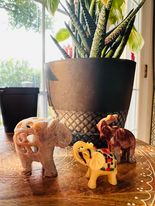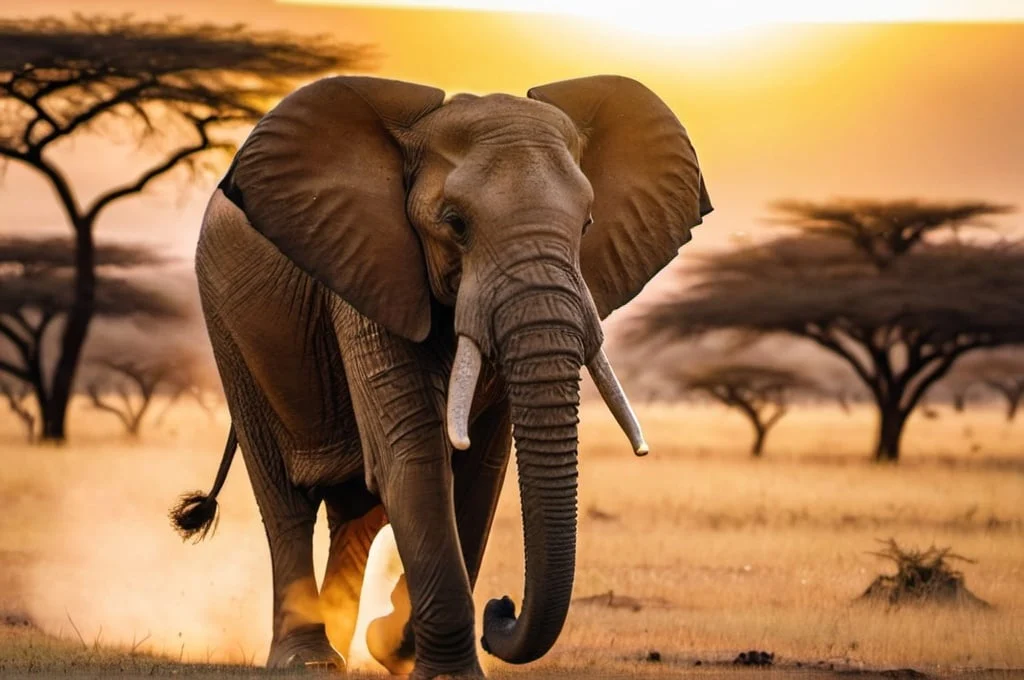Hidden Wisdom Found in the Elephant’s Remarkable Memory
An Inspired Curiosity about Elephants
It was my mother who inspired a curiosity about elephants. As a little girl, I marveled at the assorted collection of delicate figurines gently displayed around our house. The larger statuettes spirited long beautiful tusks. The smaller pocket-sized ones playfully boasted their own unique charm and color. According to mom, “Elephants possess wisdom and goodness. If the trunk is facing upward, it is said to bring prosperity and kindness. Moreover, a downward posture points to a long happy life.”
Why the ancients believed these towering animals bring good tidings is lost in time.

It was not long before I started to collect elephant treasures too. Some are made of wood while others are carved out of marble. Each opens a door to a wonderful memory every time it catches my attention. Over time, I enjoyed learning about the fascinating qualities that set these gentle giants apart from other animal species. Among them, is the elephant’s incredible use of memory that makes them essentially contemplative animals.
Studies reveal that despite their extraordinary brain structure, elephants cannot remember every experience throughout their life. It is hard to imagine how that could be possible considering their long life span. The leading matriarch will store only those memories worthy of the brain’s long-term cache if they contribute to the herd’s survival. What’s more, there is a limit on the amount of information elephants can encode, store, and retrieve. Only those events and experiences deserving of remembrance are kept in memory for the long-term.
In many ways, there is hidden wisdom to be found in the way elephants use their remarkable memory.
Father [Jordan] Aumann writes about memory in his book, Spiritual Theology. He shares, “Memory can give inestimable service to the intellect and can be its most powerful ally. Without it, our spirit would be like a cup that is always empty, however much water is poured into it.”
Memory is a God given gift.
We all possess an inner sanctuary where our memories are pieced together and stored. Sharing happy stories with others gives us a chance to re-live the joy we experienced in them. And the memories we choose to carefully seal inside the covers of a journal create a kind of time capsule to draw meaning from them decades later.

Surely life unfolds events to forever cherish in memory, or painfully remember. Every memory that comes with the loss of my brother James on 9-11 is profoundly heart-breaking. And yet, as painful as the anniversary of that terrible day is, it is my unfailing memory that enables me to preserve the everlasting bond we held as siblings. In this way, my memory is truly a gift.
In all circumstances, I strive to keep my memory centered always on God, the way the petals of a just bloomed rose are affixed to its stem. Wind and rain can hurl against it, but the rose remains whole.
God commands us to be intentional with our memories
God instructs us to be selective with the memories we choose to dwell on or slip away because they bring no benefit to the soul. Turning to the saints, the apostles rightly expressed a profound desire to commit to memory everything Christ taught them. They feared their memory would fail when trying to pass on his words exactly as He spoke them.
Assuring them, Christ answers,
“These things I have spoken to you while being present with you. But the Helper, the Holy Spirit, whom the Father will send in My name, He will teach you all things, and bring to your remembrance all things that I said to you (John 14:25-26).
Like the apostles, we can also seek the wisdom of the Holy Spirit. In prayer, we seek God’s help to strengthen the resolve of our will to dwell on only those things that point toward the beautiful truths of heaven.
As with all suffering, it can be difficult to feel God’s presence as we try to cope with difficult memories. Some wound forever. We do all we can to just catch our breath after the loss of someone we love. Elephants have been shown to exceedingly mourn over lost family members. Upon discovery, the herd stands guard over their loved one for a long time, touching the face, ears or bones of a carcass with their trunks. They do this to remember and commit that creature to memory, and leave still mourning.
The anchor of all hope in loss is found in God’s grace.
None of us can independently live apart from God and still expect to flourish in this world. Life, with all its unforeseen battles, teaches the harsh reality of this truth. The Deceiver is cunning, and certainly strikes in the places where we are most weak. As Edmund regretfully found in Narnia, a tempting “Turkish delight” aims to get us to buy into the lie that Narnia is no more.
In Christ, we can trustingly place all memory, every joyful and sorrowful experience, in his redeeming love. And by the grace given, the memories that keep us apart from the safety of God’s love are silenced. Little by little, we begin to see through the brokenness, to encounter the glorious Mystery of God’s reality. The hope we have long been searching for is found in Him.
As St. John of the Cross teaches, “our memory is the seat of Christian hope.”
Through prayer, our eyes and hearts remain fixed on Christ. And by the light of faith, we are blessed with the grace to carry only the good, beautiful and true memories into each new day.
We can trustingly leave the ones too hard to carry alone in God’s unfailing hands.


